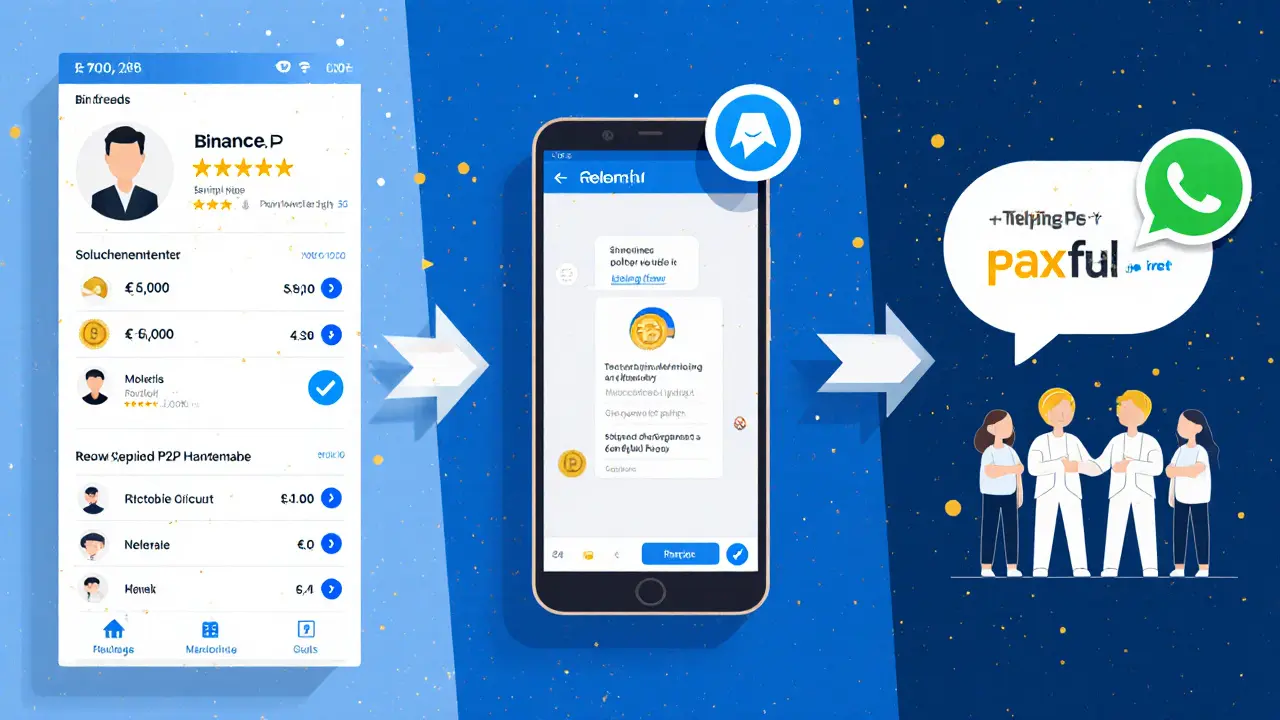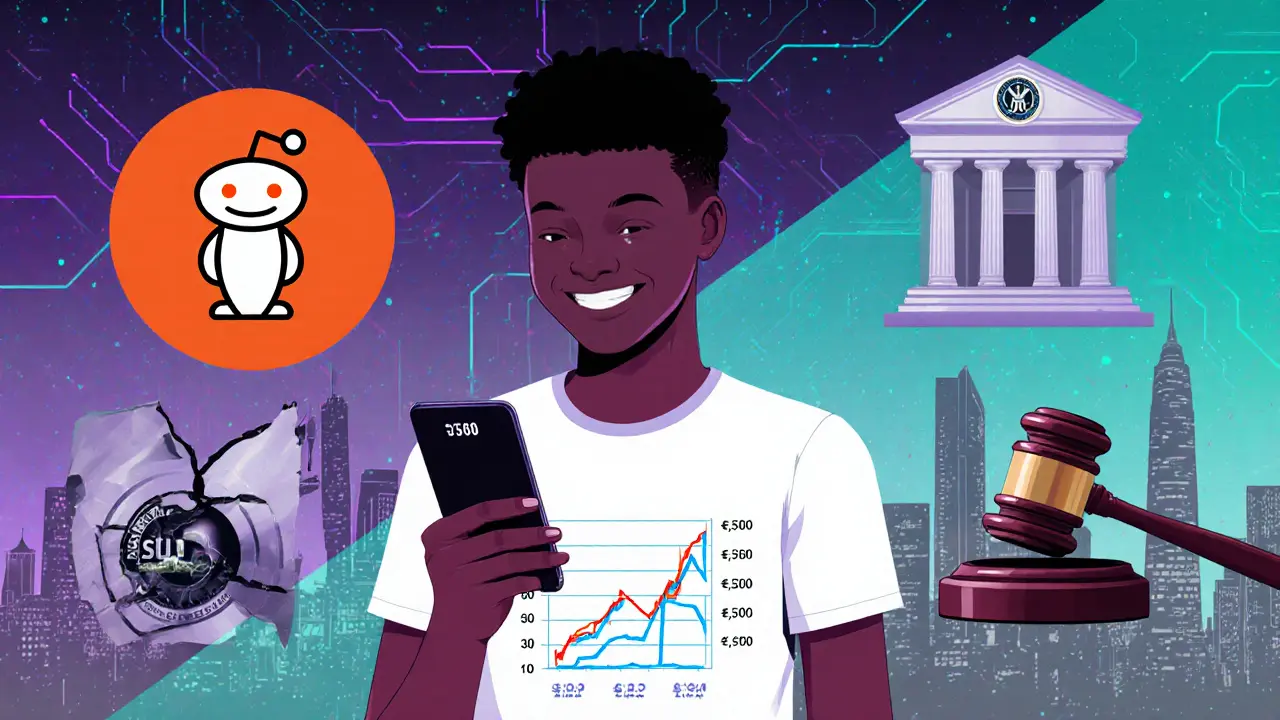Nigeria Crypto Transfer Calculator
Calculate how many transfers you'd need to send larger amounts under Nigeria's bank transfer limit of ₦500,000 during the 2021-2023 crypto ban period.
When the Central Bank of Nigeria (CBN) ordered banks to stop any crypto‑related activity in February 2021, most people expected the market to die. What happened instead was a massive, informal ecosystem that thrived completely under the radar. This underground crypto economy kept Nigerians buying, selling and transferring digital assets even as formal channels were shut down.
Why the ban created a grey‑market opportunity
CBN’s circular explicitly prohibited financial institutions from "identifying and terminating the accounts of people or businesses that deal in or run cryptocurrency exchanges". The wording left individuals free to trade, but without any bank support. That paradox sparked a classic supply‑and‑demand reaction: demand for crypto stayed high, supply shifted to peer‑to‑peer (P2P) platforms, and a whole set of workarounds sprang up.
Core pillars of the underground ecosystem
- Binance P2P is a platform that matches buyers and sellers directly, letting them settle trades with Nigerian naira via bank transfers, mobile money or airtime. By Q3 2022 it hosted over 1.2 million Nigerian users and handled roughly $150 million in monthly volume.
- WhatsApp served as the primary verification channel, with groups of 50 000+ members sharing reputation scores and escrow tips.
- Telegram was the hub for rapid price discovery and for the "Naija Crypto Arbitration Group" that settled thousands of disputes each month.
- Paxful provided multi‑signature escrow services that Nigerian traders used for 32 % of its global escrow transactions during the ban.
- Chainalysis estimated that Nigeria processed $56.7 billion of crypto transactions between July 2021 and June 2022, about 1.2 % of global volume.
- FATF raised anti‑money‑laundering concerns, warning that the unregulated market posed significant AML risks.
How traders actually moved money
Because banks capped single transfers at around ₦500,000 ($600), traders split larger orders into multiple smaller ones. A typical workflow looked like this:
- Find a reputable seller on Binance P2P and check their rating (most top‑rated users held ≥ 4.5 stars).
- Agree on a payment method - usually a direct bank transfer, but many also used mobile‑money services like Paga or airtime credit.
- Send a tiny test payment (₦5,000) to verify the seller’s bank details. If the test clears, proceed with the full amount.
- The seller releases crypto from the platform’s escrow only after confirming receipt.
- Both parties post a brief receipt screenshot in their WhatsApp group for community verification.
This double‑check routine cut scam rates by roughly 37 % according to CryptoNaija’s community data.

Risk mitigation - community‑driven policing
Without formal KYC, users built their own trust layers. Blacklists circulated in WhatsApp groups, and a “reputation score” was calculated from three factors: completed trades, dispute history, and peer endorsements. A 2022 Breet.io survey reported that 89 % of respondents trusted P2P trading more than any formal bank for crypto transactions.
Economic impact - numbers that matter
| Metric | Value | Source |
|---|---|---|
| Monthly P2P volume (peak 2022) | $150 million | Binance P2P analysis |
| Total crypto transaction value (July 2021‑June 2022) | $56.7 billion | Chainalysis report |
| Share of global crypto activity | 1.2 % | Chainalysis report |
| Average user age | 18‑35 years | Creditcoin.org survey |
| Percentage reporting at least one scam | 42 % | Monierate study |
These figures show that, despite representing only 0.1 % of global GDP, Nigeria’s informal market contributed a sizable slice of worldwide crypto flow.
Human stories - success and loss
Reddit’s r/NigeriaCrypto exploded from a few thousand members to over 87 500 during the ban. One user, “LagosTrader87”, turned a ₦5 000 seed fund into a ₦2.3 million portfolio within 18 months, paying for university tuition entirely through P2P gains. Another, “AbujaInvestor”, lost ₦380 000 after a seller vanished post‑transfer, illustrating the thin line between profit and peril.

Regulatory backlash and legacy
When CBN lifted the ban in December 2023, it still barred banks from holding or transacting in crypto. In May 2024 the Securities and Exchange Commission announced a fresh clamp‑down on Binance P2P, signaling that the underground model still rattles authorities. Yet the cultural shift is permanent: a 2024 Techpoint Africa poll found 89 % of Nigerians now view cryptocurrency as a legitimate financial tool.
What the future may hold
Upcoming legislation-like the Investments and Securities Act of March 2025-promises to bring parts of the underground market into formal regulation while still taxing gains at 25 % from 2026. Experts agree that the ban unintentionally accelerated innovation; the networks, escrow tools, and community governance models born in the shadows will likely shape Nigeria’s official fintech landscape for years.
Quick checklist for anyone still trading informally
- Never trade more than you can afford to lose.
- Use the test‑payment method for every new counter‑party.
- Check the seller’s rating on at least two platforms (e.g., Binance P2P and Paxful).
- Document every transaction in a secure cloud folder for potential disputes.
- Stay updated on regulatory announcements via the CBN and SEC websites.
Is it legal to buy crypto in Nigeria during the ban?
Individuals were not prohibited from buying or holding crypto, but they could not use bank accounts for the transaction. That’s why the P2P market flourished.
What are the safest P2P platforms?
Binance P2P and Paxful consistently rank highest in reputation and escrow reliability. Pair them with community‑verified sellers for best results.
How can I protect myself from scams?
Start with a small test transaction, verify the seller’s bank details in a trusted WhatsApp group, and only release crypto after confirming receipt.
What happened to my frozen bank account?
Banks flagged accounts that received crypto‑related transfers. The typical remedy is to close the affected account, open a new one, and avoid future crypto deposits through banking channels.
Will the underground market disappear after the new regulations?
Unlikely. Past bans have shown that once a peer network forms, it persists even when official channels become available. Expect a hybrid model where formal exchanges coexist with P2P groups.


Author
Ronan Caverly
I'm a blockchain analyst and market strategist bridging crypto and equities. I research protocols, decode tokenomics, and track exchange flows to spot risk and opportunity. I invest privately and advise fintech teams on go-to-market and compliance-aware growth. I also publish weekly insights to help retail and funds navigate digital asset cycles.